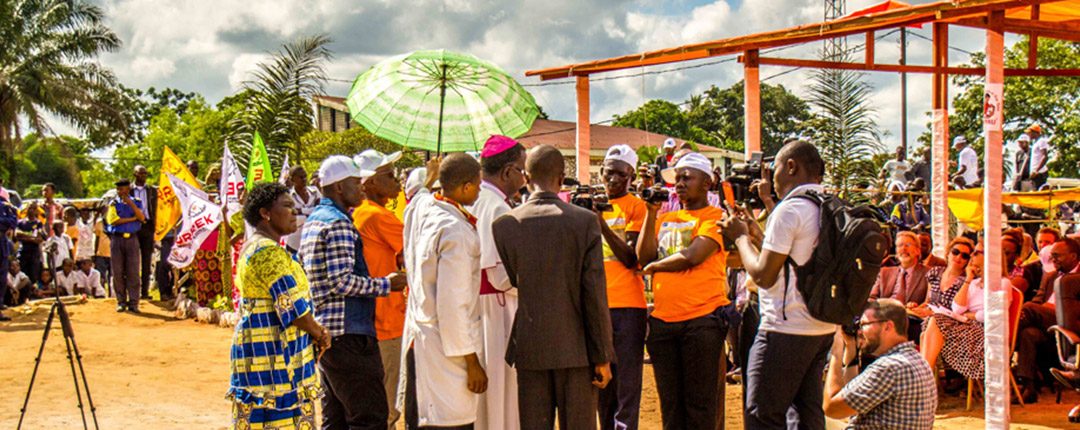In mid-November, IMA inaugurated two new health facilities built and equipped through the Access to Primary Healthcare (ASSP) program in the Democratic Republic of Congo, which works to strengthen the health system in close collaboration with the Ministry of Health. These new facilities — the first of many — have been equipped with material and medicines, and their staff has been trained according to our strategy of holistic systems strengthening support to the health sector.
During the inauguration, Dr. Larry Sthreshley, Country Director of IMA World Health DRC, said:
“The ASSP project works in harmony with the National Health Development Plan to bring improved health to more than 9 million people in the DRC. It is an honor and a privilege to work with the British Government and the Ministry of Health to improve access to health clinics for the people of the DRC.”
The two health centers, Mamu Wetu and Katoka Bena Mande, are the first of 12 to be completed in West Kasai province. Beginning in early 2015, the construction program will expand into Equateur province. The ASSP project aims to complete over 200 health centers throughout the 5-year program, with a goal of 25 completed centers per year.
As with most interventions in DRC, constructing health centers in these rural provinces can be challenging. IMA architect Antonio Nevada Martinez explained, “The biggest challenge is definitely the transport of materials from where they are bought to the sites. The roads are poor, and in the rainy season the conditions are even worse. Another challenge is training the local workers on new construction techniques. We are coming in with a different level of quality and expectations, so we are working on replacing the old techniques piece by piece as we move along.”
Despite challenges, IMA’s construction team has been successful at getting this ambitious construction program off the ground. Though only 12 of the proposed centers broke ground this year, the team has learned to overcome the common obstacles and is optimistic that the program will gain significant momentum in 2015.
As the inauguration event came to a close, Deputy Chief of DFID DRC Charlotte Duncan declared, “I hope that with these new health centers and those that will be delivered later, many children will have access to vaccines, many women of childbearing age will have access to skilled birth attendants and coverage, and quality of health services in the province will be optimal.”


Recent Comments